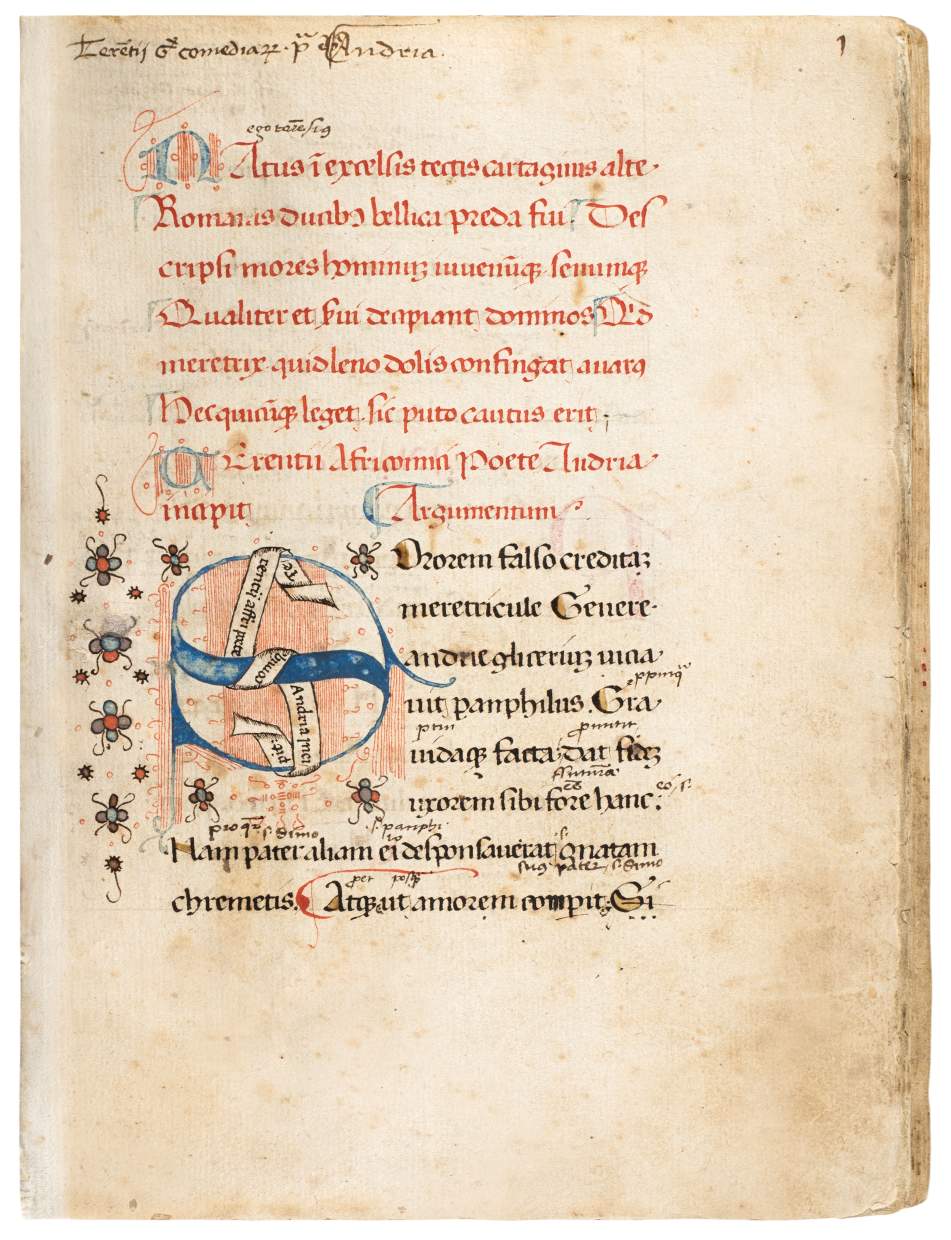

Terence, Comoediae I-VI – Petrarch, Vita Terentii
Manuscript on paper
Italy or Spain, Kingdom of Aragon and Naples, c. 1450-1475
fol. 1r: Introduction of Andria


Terence, Comoediae I-VI – Petrarch, Vita Terentii
Manuscript on paper
Italy or Spain, Kingdom of Aragon and Naples, c. 1450-1475
fol. 2v: Andria


Terence, Comoediae I-VI – Petrarch, Vita Terentii
Manuscript on paper
Italy or Spain, Kingdom of Aragon and Naples, c. 1450-1475
fol. 42v: Eunuchus


Terence, Comoediae I-VI – Petrarch, Vita Terentii
Manuscript on paper
Italy or Spain, Kingdom of Aragon and Naples, c. 1450-1475
fol. 64v: Eunuchus


Terence, Comoediae I-VI – Petrarch, Vita Terentii
Manuscript on paper
Italy or Spain, Kingdom of Aragon and Naples, c. 1450-1475
Original binding in Mudejar-style
Hide caption
Terence's Comediae were to be found in most humanist libraries in Renaissance Italy. Dante cited the plays, Petrarch studied Terence's work and life, and Boccaccio copied the comedies for himself. The playwright Publius Terentius Afer (d. 195 BC) is one of five Roman authors that have been taught to students all over Europe. Based on earlier Greek models, the comedies have ingenious plots with theatrical appeal, spectacle, and caricature. With dramatic irony and subtle psychology, the characters speak with elegant charm and lack the vulgar expressions often usual in comedies. A continued tradition of these texts and various comments since the early Middle Ages shows the lively transmission of the six plays, that are still intensely studied and discussed today. The Comediae were handed down in numerous manuscripts, of which none is the same.The present manuscript contains an, in literature unrecorded, copy of the author's Vita written by Petrarch and Terence's Comedies, profusely commented upon and annotated by a contemporary 'student'. The book bears witness to humanistic culture, education and entertainment.
Read more about this book in our Spotlight.



